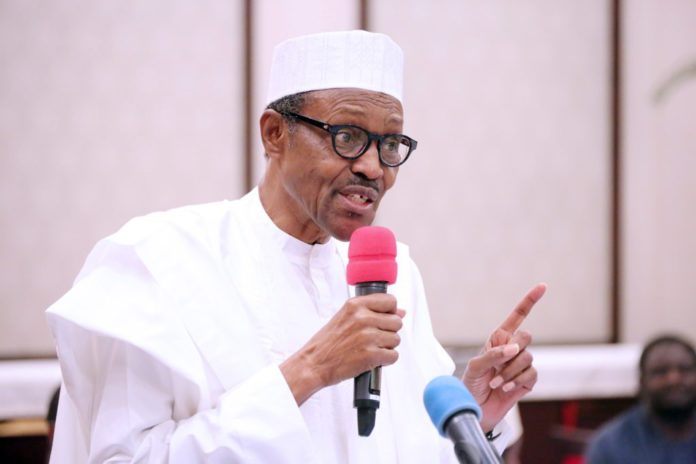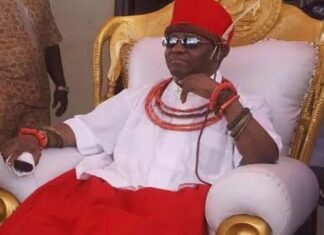By Nduka Uzuakpundu
As the 2019 general elections draw near, it is a healthy development that the Buhari administration has invested a lot of resources, hope and confidence, so that the exercise would be hate speech-free.
The intent, for one, is to have an exercise that would be ruled, by all participating political parties, local and foreign observers and the Independent National Electoral Commission (INEC), as transparent, peaceful, credible, free and fair.
For another, it is to protect the country’s young Fourth Republic and nascent democracy from the ugly effects of violence, destruction of lives and property that are associated with hate speech.
It should be pointed out that until 2016, hate speech was rife on radio, television and the internet; and in form of opinion or news published in newspapers. Some had the impression that they were sponsored by the enemies of the Buhari administration.
A majority of those involved in the propagation of such hate speeches – individuals who ought to have known better – probably mistook freedom of speech as enshrined in Section 39 of the 1999 Constitution, as a licence to be irresponsible and loose.
And when the Buhari administration moved against the propagation of hate speech – making it a crime, as it were – via the Nigerian Broadcasting Commission (NBC) and Ministry of Information and Culture, which lodged a protest with proprietors of radio and television stations, and policy-makers at newspaper houses, many were those who felt it was an abridgement of free speech.
The truth, nonetheless, is that, today, Nigeria’s airwaves are a lot sanitized than they were two years ago. The 2019 general election will be the first that INEC would organize under the All Progressives Congress-led Buhari administration.
The Buhari administration wants to make a clean break with the experience that this country has had with most electoral exercise. And concerted efforts – beyond such lines as religion, ethnicity, tribe and political party – should be made, so that the elections are, if anything, peaceful.
Therefore, there’s a pressing need for policy-makers of the various political parties and their standard-bearers to queue behind the Buhari administration to shorn hate speech as they go about campaigning.
They also have a compelling duty to admonish their supporters to be mindful of what they say in the run-up to, during and after the elections, if only not to create unnecessary tension in the policy – at the expensive price of national peace, security and harmony.
When the Buhari administration threatened to withdraw the license of any broadcast medium that was found guilty of disseminating hate speech, it was with a conscious effort to nip in the bud what was perceived as likely to shove the country back to the early ’60s; if was not political rascality and brigandage, in which all the dominant political parties and their members were complicit, it was Operation Wetie – one of the top most acts of violence that buried the First Republic, following the military camp in January 1966. No responsible government would want a play-back of that tape.
The prelude to that bloody event started with hate speech: intolerance, mud-stinging or character assassination, crude political intrigues that were frightened unrepentantly on ethnicity, religion, tribalism and political affiliation.
Worse still was the fact that they were very enlightened political leaders who, so it seemed, superintended over those untidy developments. Perhaps for their selfish political ambitions, the Nigerian nation state that they aspired to govern, should burn – and, possibly, too – to ashes.
But, because the Fourth Republic has lasted longest than the three before it, all the political parties – their leaders and members – should see themselves as its worthy ambassadors or protectors. Their utterances should be constructive and their opposition to government policies or programmes should portray them as being of loyal disposition.
Not being a specialist in hate speech that many a political party leader or captain of pressure group or activist have come to see as an expressway – via social media, in most instances – to sell him or herself as a representative of a certain genre of politics or social tendency that does not promote the cause of democracy and national stability.
In place of propagating hate speech or fake news – ‘the bombing of the headquarters of the Nigerian National Petroleum Corporation (NNPC)’ or Nigeria’s foreign reserves now empty’ – both fake news that some mischievous elements posted not so long ago on social media – one thinks it’s imperative for political, religious and tribal leaders, and media owners to do what they can – a la President Muhammadu Buhari – to the preservation of the unity, security and peace of the Nigerian nation state.
After nearly two decades of the maladministration by the People’s Democratic Party (PDP), which was terminated by the dawn of the Buhari’s administration, in 2015, most discerning Nigerians are tempted to hold firmly to the belief that hate speech was invented by opponents of the APC-led administration to plunge the country into a deep crisis – one that would have had a crude mix of political, religious and tribal complexions.
In place of hate speech and fake news on social media, where they thrive somewhat unrestrained, Nigeria’s political leaders and their associates, who indulge in them should channel their energy and resources towards how best, in league with the Buhari administration, they could make history of the Boko Haram terrorist sect, steel the country’s economy in a post-recession period and assist INEC – via non-violence, honesty and transparency – to conduct an election, come 2019, that will sink the roots of democracy in the Fourth Republic.
One’s opposition to hate speech and fake news – two pointed instruments of violence that could harm this country, if unchecked, especially during an election period – is akin to advocating “politics without bitterness” for which the late Waziri Ibrahim, the presidential candidate of the defunct Great Nigeria People’s Party (GNPP) was very much admired.
He was on record to have cautioned one of his party loyalists in the late ’70s against what was akin to hate speech at a campaign rally in one of the towns in what was then Cross River State. That’s an example that should be emulated by today’s actors.
Nigeria’s political leaders should bear in mind that it was the criminal abuse of freedom of speech or expression that led to the Rwandan genocide: a large-scale slaughter in which nearly one million people – a majority of them Hutu people – were slaughtered.
Nigeria’s political and opinion leaders have a binding responsibility to shield the country and the Fourth Republic from such a catastrophe by joining hands with the Buhari administration against hate speech and fake news. The faceless bloggers on the social media and journalists on mainstream or traditional media, too.
Politics and democracy should be seen as allies in building a culture of tolerance, good behaviour, trading of concessions, and peace. In the Nigerian context, it presupposes a responsibility to build and strengthen national cohesion and harmony; one should be less accommodating of hate speech. Nigeria needs clean politics not only to fortify her economy and unity, but also to present her as a model worthy of emulation by other African countries.
.Uzuakpundu, a journalist, writes from Lagos
















